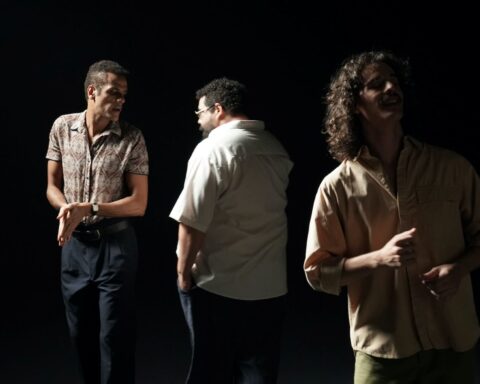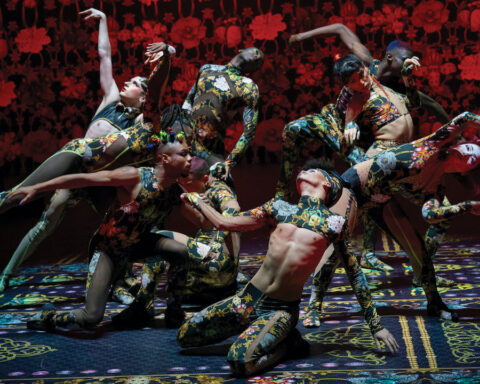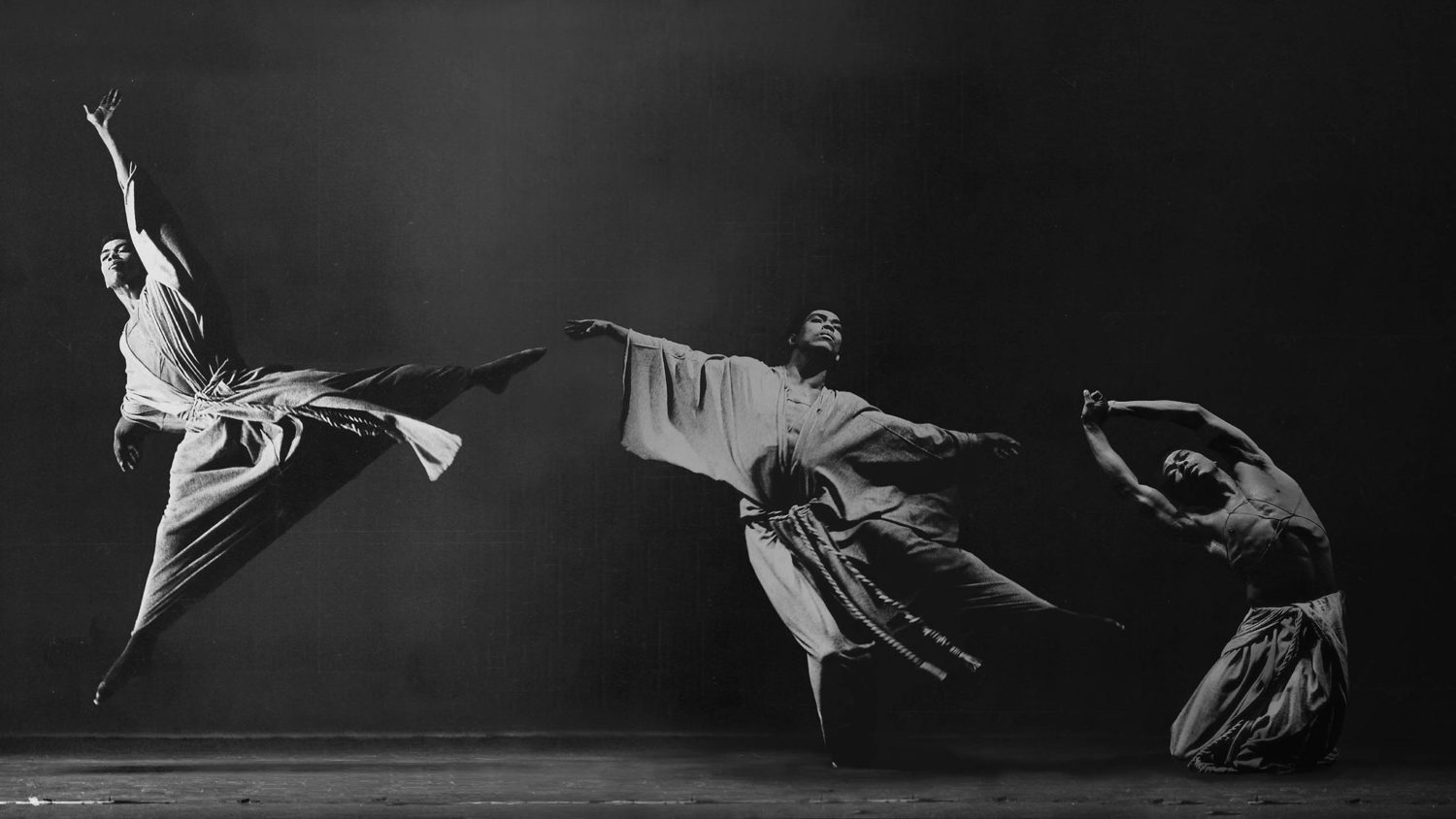The latest report on films from Sundance offers a theme of metamorphosis. From young women coming of age before the camera in Texas, to an iconic choreographer coming into his own on the world’s stage, and a biologist being one with the butterflies, Sundance has diverse experiences at the forefront of its programming this year. Here are three films that highlight the power of representation, while inviting audiences to experience unique and privilege spaces shared by their subjects.
Cusp
(USA, 83 min.)
Dir. Parker Hill, Isabel Bethencourt
Programme: U.S. Documentary Competition
Cusp “goes there.” This bold and bracing portrait of youth is not an easy watch, but has its finger on the pulse of contemporary youth. Directors Parker Hill and Isabel Bethencourt gain remarkable access to the lives of three Texas teens—Autumn, Brittney, and Aaloni—who bravely let the cameras into their lives. Cusp witnesses this trio from the selfie culture generation growing up unexpectedly fast, making sense of traumatic experiences in between partying hard day and night.
The film won’t be an easy watch for many viewers, particularly parents, as the three 15-year-olds drink, smoke drugs, and discuss their sexual experiences openly. Yet the non-judgmental direction of Hill and Bethencourt provides the girls with a privileged space where they can make sense of their lives. More disarming than the girls’ recreational habits, however, is the casualness with which they discuss sexual assault. They recall a friend who was recently raped by her boyfriend, and yet the revelation barely registers with the besties in the group. This violence is something they deal with daily. The cameras witness it firsthand as older boys ogle the girls, expressing disappointment that they’re only 15, and continue to make advances, suggesting the impact of #MeToo might not be registering with the young men.
Cusp observes a generation that doesn’t seem to grasp the nature of consequences. These youths are products of an era in which communication mostly means messaging and selfies, which invite likes, shares, and instant gratification, and where any dissenting party can merely be blocked or muted. There’s barely a shot in Cusp in which all the subjects aren’t on their smartphones. Yet the rawness and authenticity with which the film captures their experiences suggests that this overstimulated and plugged-in generation’s growing pains are unlike those of their elders. However, as products of the selfie culture generation, the subjects’ have a natural comfort with the camera. They bare themselves in Instagram stories and TikToks, anyway, so mediated self-expression comes easily.
Hill and Bethencourt also inject a timeless nature to the fleeting images of the girls’ lives. Magic hour cinematography gives Cusp a chance to breathe as Autumn, Brittney, and Aaloni embrace the fading hours of each day. As one day fades into another, Cusp suggests that every generation has its own struggles that are part of growing up. – Pat Mullen
Ailey
(USA, 82 min.)
Dir. Jamila Wignot
Programme: US Documentary
The enduring legacy of Alvin Ailey dances across the screen in a new documentary about his brilliant, joyous life. Ailey pieces together the journey of the iconic dancer and choreographer all the way from rural Texas to becoming a world-renowned star, leaving behind a studio dedicated in his name. The film begins at the studio in the present day, watching the troupe create a tribute to Ailey. His lingering presence and memory hang in the air. Ailey captures the life of a man who found the secret to his survival in the art of dance. His choreography transcended beyond the burdens of racism and homophobia, if only for a number.
In the film, choreographer Mary Barnett calls Ailey’s work on his most famous routine, Revelations, “A re-enactment of life.” Through dance, he was able to create a world of freedom for himself and African American people. Director Jamila Wignot arranges clips of Ailey’s dances skillfully, giving a strong impression of his clear artistic vision. The stage was a space to work through problems too brutal to bear in the real world, a space to replay and rework narratives with power and strength.
While the film’s structure and talking heads can be a bit cut and dry, it peels back the layers of the notoriously private life Ailey led and examines them with grace. The doc gets at the heart of the internal battles that contended with his blossoming career and genius, including mental health and struggle to express his sexuality in public despite having the platform of the stage. AIDS-related complications may have taken his life, but dance gave him a life worth living, and a legacy worth remembering. Ailey is a beautiful act of remembering. – Madeline Lines
Son of Monarchs
(USA/Mexico, 97 min.)
Dir. Alexis Gambis
Programme: Next
Alexis Gambis notes in his director’s statement that Son of Monarchs “uses science as a lens through which to focus on the complex interplay between immigration, migration and climate change.” This sentiment resonates throughout his exquisitely shot film. Son of Monarchs has a few too many ideas fluttering in its wings, however, which makes for a somewhat disorienting case of information overload. Gambis and much of the Sundance messaging positions this winner of the festival’s Alfred P. Sloan Feature Film Prize as a piece of scientific cinema. The attention to detail and research is evident in this meticulously factual drama, if a hindrance to the film’s spiritual core that soars in wondrously cinematic moments as New York-based Mexican-born biologist Mendel (Tenoch Huerta) considers the migration patterns of monarch butterflies and the legacy of his ancestors.
Mexico’s Day of the Dead coincides with the monarchs’ return journey to the nation after months up north. Mendel, who studies the pigmentation of monarchs’ wings, finds himself immersed in a creature that is the perfect metaphor for his experience. As Mendel navigates his disconnect between life in New York and Mexico, Sons of Monarch provides a stirring portrait of migrant experiences. This core of the film finds itself somewhat overwhelmed by conference meetings about CRISPR, scientific debates, DACA, and the implications of being a Latino in Trump-era America. These ideas are all relevant, but aren’t synthesized gracefully, making for a few heavy-handed moments, mostly with Mendel’s latte liberal girlfriend (Alexia Rasmussen), or clunky exposition that distills the science for general audiences. The effort nevertheless makes Son of Monarchs one of the more original films at this year’s Sundance Film Festival and, more often than not, a provocative experiment in metamorphosis. – Pat Mullen
Sundance 2021 runs from Thursday, Jan 28 to Wednesday, February 3.














